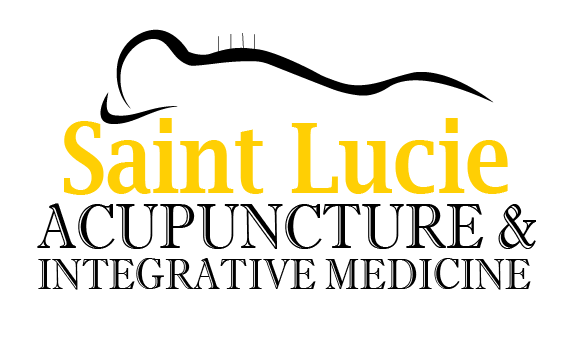SAINT LUCIE ACUPUNCTURE & INTEGRATIVE MEDICINE CALL 772-4447172
Herbal Medicine, Aromatherapy, Supplements and Nutrition
Nutrition
Nutrition is one of the most important parts of staying healthy. About 80% of our health is based off of this factor alone. In Eastern medicine, the primary diet includes 5 tastes and 6 food groups. These tastes are spicy, sweet, sour, bitter and salty. The food groups are fruits, vegetables, meat, dairy, grains, spices and herbs. Each taste and food correlates with a specific part in the body to help its function when in disorder. Bitter tastes help the heart, salty helps the kidney, sweet helps the spleen, spicy helps the lungs and sour helps the liver. A well balanced diet expands food options in order to take in all types of nutrition sources for what may be best fit for your body.
Supplements
Taking the right supplements helps and the ones we recommend most include Vitamin C, Magnesium, Probiotics and Collagen. Vitamin C is an antioxidant that boosts the immune system. In return, it’s fighting inflammation and reduces the risk of chronic disease. Magnesium is beneficial for bone health, heart health and helping headaches, anxiety and depression. Collagen supplements help your body as it ages. As bones are weakened with age, an intake of collagen can help problems with knees, back pain and joints. Collagen also improves skin elasticity reducing wrinkles and and roughness. Probiotics improve gut health which in return helps some mental health conditions such as anxiety, depression, OCD, memory, and autism. There are also certain strains that can be beneficial for heart health and reduce the intensity of specific allergies.
Aromatherapy
Essential oils are concentrated plant extracts that give off the natural smell of many herbs and plants. These oils also have the benefits that come with each plant. Through breathing in essential oils, one is able to allow the healing properties of the compounds into their lungs and bloodstream. These oils are most commonly used in diffusers, mixed with carrier oils and all natural products. For example, when people smell peppermint, it can sooth nausea and quiet headaches.
How is Eastern Herbal medicine different?
The origins of Eastern herbal medicine can be traced back at least 5,000 years. Herbal medicine takes a natural and holistic approach to healthcare and is trusted by people from a wide range of cultural and social backgrounds. Herbal medicine has a holistic approach to disease and prophylactic care and focuses as much on the prevention of illness as the treatment of it.
Most diseases or illnesses present with a core set of recognizable signs and symptoms, but the actual presentation of a particular disease or illness may vary from person to person. For this reason, people with similar health conditions may be provided with different Eastern herbal medicine prescriptions.
A qualified practitioner will prescribe an herbal formula specifically formulated for your own condition. The formula is also adjusted and modified during the recovery period until the desired health outcome is achieved.
What substances are used in Eastern herbal medicine?
There are more than 450 substances commonly used in Eastern herbal medicine – most are of plant origin though some animal (we don’t use animal origin substances in our clinic) and mineral substances may also be used. You may find some in your kitchen, such as ginger, garlic and cinnamon, while others such as chrysanthemum and peony flowers, are more likely to be found in your garden.
Some substances that were used traditionally are no longer part of modern professional herbal medicine practice. For example, traditional remedies with extracts of endangered species have been replaced by other substances with similar actions.
How is Eastern herbal medicine prescribed?
Herbal medicine is prescribed either in pure form or combined in a formula. A well-constructed formula targets the condition, while counteracting and minimizing the unwanted effects of an individual herb.
Herbal medicine can assist with general health maintenance and disease prevention. By strengthening and enhancing normal body functions, the immune system is boosted and a general sense of well-being promoted.
The ways you can take your herbal formulas
Our herbal formulas can come in five different forms. There are raw herbs, granules, capsules, tablets and tea pills. Raw herbs and granules have the taste of the herbs. While raw herbs maintain they’re natural form, granules are grounded herbs that create a powder. Granules are more concentrated and best consumed mixed with water.
Capsules
This herbal form uses granules that are compacted into a vegetarian capsules.
Tablets
Contain the powder form of the herbs and is then compacted into a solid. Each pill has a solid unit dosage.
Tea pills
These pills are composed of a tea mix that was cooked in water and simmered down into a concentrate. Afterwards, they formed into little black pills. They’re small, easy to take and can have a bit of a bitter taste.




